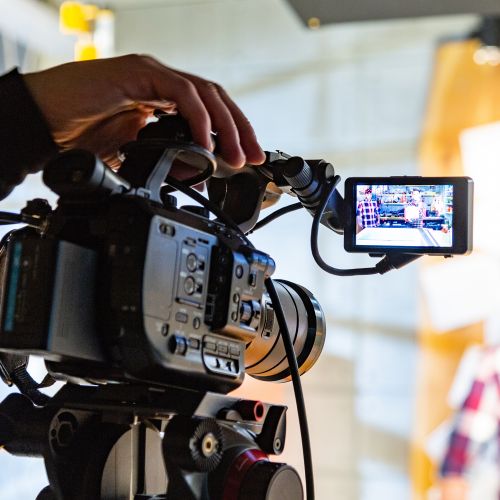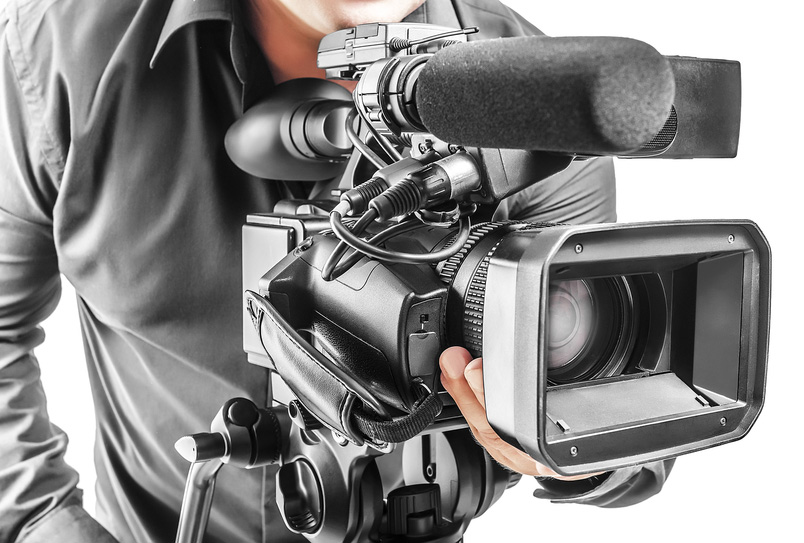Checking Out the Vitality of Legal Videography: a Comprehensive Understanding Into Its Capability in Protecting Accurate Visual Records for Legal Instances
Lawful videography stands as a critical component in the world of legal proceedings, serving as a quiet yet effective onlooker in the quest of justice. As we delve into the functionality and value of lawful videography in the context of lawful cases, a profound understanding dawns upon the crucial duty it plays in forming the course of justice.
Importance of Lawful Videography
Highlighting the pivotal role of lawful videography in modern-day lawful procedures, its significance depends on its capability to supply undeniable visual proof that boosts the presentation of testimonies and truths. By catching real-time events, depositions, and witness statements in a video clip format, lawful videography guarantees that every expression, subtlety, and detail is accurately preserved for later review. This visual documents functions as a powerful device in courtrooms, permitting judges and jurors to much better recognize the context of a case and make educated decisions based upon today proof.
Additionally, lawful videography adds to enhanced transparency and responsibility in the legal system. In significance, the relevance of legal videography exists in its ability to maintain the stability of the lawful process by capturing and maintaining accurate aesthetic documents that sustain the search of justice.
Functionality in Lawful Documents
Legal videography's duty in contemporary legal process extends beyond offering visual evidence; its functionality in lawful paperwork is necessary for accurately protecting the details of testaments and events. Via the careful recording of depositions, courtroom process, witness testaments, and criminal offense scene investigations, legal videography guarantees an unfiltered account of events that can be reviewed and examined throughout the lawful process. This exact documentation functions as an important source for judges, juries, and legal representatives to reference details minutes, body language, faces, and subtleties that might not be completely caught in created transcripts alone.
Additionally, lawful videography plays a critical function in preserving the honesty of legal procedures by minimizing the danger of misinterpretation or adjustment of details. The aesthetic records captured with lawful videography supply an objective representation of the truths presented during an instance, offering a dependable and comprehensive resource of proof that can substantially influence the outcome of lawful disagreements (Legal Videography). In significance, the functionality of lawful videography in legal documentation serves as a cornerstone in upholding transparency, precision, and fairness within the legal system
Relevance in Visual Proof Preservation
Maintaining visual proof with thorough recording methods is an important facet of lawful videography. The relevance of aesthetic proof preservation can not be overstated in legal proceedings. Aesthetic evidence, such as videos of criminal offense accidents, scenes, or statements, can give vital insight right into occasions that words alone may not totally capture. By properly documenting these visuals, legal videographers play a critical role in making certain the stability and credibility of proof offered in court.
Aesthetic evidence preservation also aids in protecting against misunderstandings or false impressions that can emerge from composed or spoken testimonies. The capability to see and listen to occasions as they happened can dramatically influence the result of a case. Moreover, visual evidence can offer as a powerful tool for both the prosecution and defense in offering their arguments persuasively.
Duty in Ensuring Justice
In the quest of fair and simply legal end results, the function of lawful videography is essential. Legal videography plays an important duty in ensuring justice by offering objective and exact aesthetic evidence that can substantially influence the end result of lawful situations.
Furthermore, lawful videography offers as a means of protecting turning points and details that may be missed out on or misunderstood in written transcripts (Legal Videography). By recording scenes, actions, and communications in real-time, legal videography aids avoid misrepresentations and makes sure that all parties involved have access to the exact same details, advertising transparency and accountability in the lawful procedure. Ultimately, making use of legal videography not only improves the efficiency of lawful procedures yet additionally upholds the concepts of justice and equity in the lawful system
Important Device for Legal Situations

Conclusion
To conclude, lawful videography plays a crucial role in maintaining exact aesthetic documents for lawful instances. Its relevance depends on its performance in legal documents, importance in visual evidence preservation, and duty in making certain justice. As an essential tool for legal instances, legal videography works as an important resource for offering visual proof and adding to the overall stability of the legal process.
Legal videography's function in contemporary lawful procedures prolongs beyond supplying visual proof; its capability in lawful paperwork is essential for accurately maintaining the details of occasions and testaments. In significance, the capability of legal videography in legal paperwork offers as a foundation in promoting transparency, accuracy, and justness within the lawful system.
Eventually, the use of legal videography not just enhances the effectiveness of legal proceedings however also upholds the principles of justice and equity in the legal read review system.

As a vital device for legal instances, legal videography offers as an important resource for presenting visual proof and contributing to the overall stability of the lawful process.